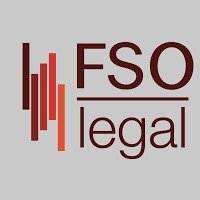Best Communications & Media Law Lawyers in Evansville
Share your needs with us, get contacted by law firms.
Free. Takes 2 min.
List of the best lawyers in Evansville, United States
About Communications & Media Law in Evansville, United States
Communications & Media Law deals with legal issues surrounding broadcasting, telecommunications, and digital media. In Evansville, United States, this field of law encompasses areas such as freedom of speech, broadcasting rights, censorship, social media regulations, privacy, and defamation. With the rise of digital platforms and technological advancements, these laws continuously evolve to address new challenges and opportunities in how information is shared and consumed.
Why You May Need a Lawyer
Individuals and organizations may require legal assistance in Communications & Media Law for a variety of reasons. Some common situations include:
- Ensuring compliance with broadcasting regulations.
- Dealing with censorship and First Amendment issues.
- Protecting personal or organizational privacy rights.
- Addressing defamation or libel claims.
- Handling intellectual property disputes related to media content.
- Navigating the complexities of online content and social media platforms.
- Litigating advertising and marketing disputes.
Local Laws Overview
Evansville, like many other U.S. cities, adheres to federal communications laws, but state and local statutes can also play significant roles. Indiana recognizes both the freedom and limits of speech, with local regulations aimed at balancing these rights. Key legal aspects often pertain to:
- Licensing requirements for broadcasters.
- Regulations around digital communications and data privacy.
- FCC rules on media ownership and anti-competitive practices.
- State-specific defamation laws that define the boundaries of free speech versus harmful speech.
Frequently Asked Questions
What does Communications & Media Law cover?
This field covers all legal issues related to telecommunication and broadcasting, including journalism, data privacy, and freedom of speech.
Are there particular regulations for social media in Evansville?
While there are no Evansville-specific regulations, federal and state laws governing data privacy and online conduct apply to social media usage.
How does Federal Communications Commission (FCC) regulation affect local broadcasters?
The FCC sets nationwide broadcasting standards, which local broadcasters must comply with. This includes licensing, content regulation, and ownership rules.
What should I do if I believe my privacy rights have been violated by media in Evansville?
Consult a Communications & Media Law attorney to explore your options regarding privacy infringement and potential legal remedies.
What is the role of First Amendment rights in Communications & Media Law?
The First Amendment protects free speech, but legal limits exist. Lawyers help navigate situations where speech infringes upon others' rights or public safety.
Can I sue for defamation in Evansville?
Yes, Indiana law allows defamation suits, which require proving false statements caused reputational harm. Legal advice is crucial for such cases.
Is there a difference between defamation, libel, and slander?
Yes, defamation is a general term, while libel refers to written defamatory statements, and slander to spoken ones.
What are the penalties for violating Indiana telecommunications laws?
Penalties vary but may include fines, injunctions, or criminal charges depending on the violation's severity.
How do intellectual property laws apply to media content?
Intellectual property laws protect original content creators from unauthorized use, and violations can lead to lawsuits or settlements.
Where can I report a telecommunications issue in Evansville?
For serious issues, contact the FCC or seek guidance from a lawyer familiar with local telecommunications law.
Additional Resources
Here are some resources and organizations that might be helpful to those seeking legal advice:
- The Federal Communications Commission (FCC) for regulatory guidance.
- Legal Aid Society of Evansville for basic legal assistance.
- Indiana State Bar Association for finding a qualified attorney.
- The American Civil Liberties Union (ACLU) for issues related to free speech and privacy rights.
Next Steps
If you need legal assistance in Communications & Media Law, consider taking the following steps:
- Assess your situation to determine the specific legal needs.
- Research local attorneys specializing in Communications & Media Law.
- Schedule consultations to discuss your case and understand potential legal strategies.
- Gather any relevant documents or evidence to support your legal case.
- Consult additional resources or organizations if you require further guidance.
Having a clear plan and seeking professional legal advice is crucial for navigating Communications & Media Law issues successfully.
Lawzana helps you find the best lawyers and law firms in Evansville through a curated and pre-screened list of qualified legal professionals. Our platform offers rankings and detailed profiles of attorneys and law firms, allowing you to compare based on practice areas, including Communications & Media Law, experience, and client feedback.
Each profile includes a description of the firm's areas of practice, client reviews, team members and partners, year of establishment, spoken languages, office locations, contact information, social media presence, and any published articles or resources. Most firms on our platform speak English and are experienced in both local and international legal matters.
Get a quote from top-rated law firms in Evansville, United States — quickly, securely, and without unnecessary hassle.
Disclaimer:
The information provided on this page is for general informational purposes only and does not constitute legal advice. While we strive to ensure the accuracy and relevance of the content, legal information may change over time, and interpretations of the law can vary. You should always consult with a qualified legal professional for advice specific to your situation.
We disclaim all liability for actions taken or not taken based on the content of this page. If you believe any information is incorrect or outdated, please contact us, and we will review and update it where appropriate.








